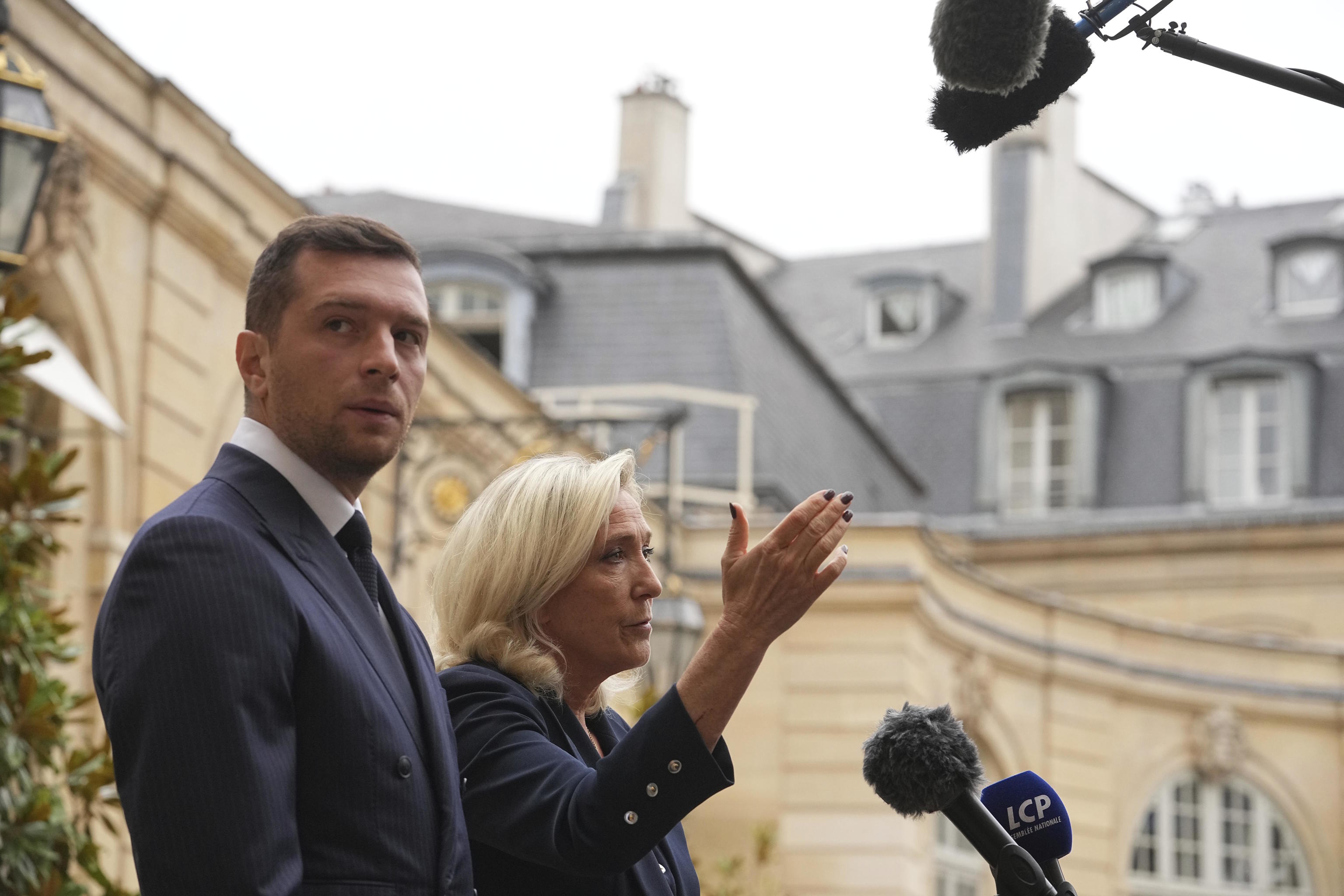The far-right leader Marine Le Pen announced this Tuesday that her party, National Rally (RN), will vote against the centrist Government of François Bayrou in the confidence motion scheduled for September 8, which will likely lead to its downfall and could force the calling of early elections this year.
After a meeting with Bayrou himself, accompanied by her protégéJordan Bardella, Le Pen demanded President Emmanuel Macron to quickly call parliamentary elections to overcome the crisis triggered by Bayrou's plan of social cuts of 43.8 billion euros - including the elimination of two public holidays - to reduce the budget deficit and tackle the public debt.
"We completely disagree with the measures proposed by the Prime Minister because they are profoundly harmful", stated Le Pen after the meeting held at the Matignon mansion with Bayrou, who in eight months has survived eight votes of no confidence thanks precisely to the "passive" support of RN deputies, who saved their ammunition for the budget battle after the summer break.
"The Prime Minister cannot sound the alarm about the terrible state of public finances when he is the main person responsible for the situation", warned Le Pen. "If he had truly wanted to avoid this situation, he should have listened to the demands of the different parties in July and taken fair and effective measures."
Bayrou's announcement on July 1, with measures such as freezing pensions for a year or eliminating Easter Monday and Victory Day festivities, simultaneously drew criticism from Marine Le Pen's far-right and Jean-Luc Mélenchon's far-left, along with La France Insoumise. Unions labeled it a "social war," and various activist groups rallied under the slogan "Let's block everything!" to call for a general strike on September 10.
The announcement of a confidence motion, anticipated by François Bayrou himself last week, was seen as a forward escape, aware that the support of the two main opposition blocs could be enough to reach the 289 votes needed out of 577 to overthrow the Government on Monday.
Bayrou's fall, who replaced the resigned Michel Barnier in December, could drag President Macron down, who has given his "full support" to the Prime Minister and has praised his budget plan as "bold and courageous." If Bayrou resigns, Macron could choose to appoint a new Prime Minister from his own center-right coalition or a technocrat with the sole aim of passing the budget, although the current fragmentation of Parliament - without an absolute majority and with three irreconcilable blocs - could prompt a new call for early elections, following those held in July 2024 that led to the current political chaos in France.
Macron, on his part, held an emergency meeting with the center-right coalition leaders to try to find a way out. The meeting was attended by Gabriel Attal (Renaissance), Édouard Philippe (Horizons), and Bruno Retailleau (The Republicans), the Interior Minister who has been in a personal standoff with the President in recent weeks.
In statements to Le Figaro, former President Nicolas Sarkozy - who on September 25 will know the verdict for corruption related to the Libyan financing of his campaigns - predicted that the only possible solution will be the "dissolution" of the National Assembly and described Bayrou's September 8 confidence motion as a "political suicide".
According to a La Tribune Dimanche poll, Marine Le Pen's National Rally is the favorite with 31% of voting intentions, compared to 23.5% for left-wing parties, 14% for the centrist bloc, and 10% for The Republicans, the traditional right.
In the end, Marine Le Pen would be the moral winner of early elections. The National Rally leader, sentenced this year to five years of disqualification from public office for misappropriation of European funds, would likely pass the baton in new parliamentary elections to MEP Jordan Bardella, while awaiting the resolution of her appeal in the summer of 2026 and keeping an eye on the 2027 presidential elections.
